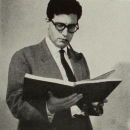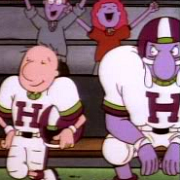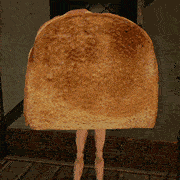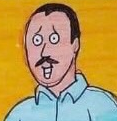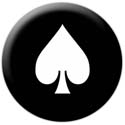|
Welcome goonlings to the Awful Book of the Month! In this thread, we choose one work of Resources: Project Gutenberg - http://www.gutenberg.org - A database of over 17000 books available online. If you can suggest books from here, that'd be the best. SparkNotes - http://www.sparknotes.com/ - A very helpful Cliffnotes-esque site, but much better, in my opinion. If you happen to come in late and need to catch-up, you can get great character/chapter/plot summaries here.  For recommendations on future material, suggestions on how to improve the club, or just a general rant, feel free to PM me. For recommendations on future material, suggestions on how to improve the club, or just a general rant, feel free to PM me.  Past Books of the Month [for BOTM before 2014, refer to archives] 2014: January: Ursula K. LeGuin - The Left Hand of Darkness February: Mikhail Bulgalov - Master & Margarita March: Richard P. Feynman -- Surely You're Joking, Mr. Feynman! April: James Joyce -- Dubliners May: Gabriel Garcia Marquez -- 100 Years of Solitude June: Howard Zinn -- A People's History of the United States July: Mary Renault -- The Last of the Wine August: Barbara Tuchtman -- The Guns of August September: Jane Austen -- Pride and Prejudice October: Roger Zelazny -- A Night in the Lonesome October November: John Gardner -- Grendel December: Christopher Moore -- The Stupidest Angel 2015: January: Italo Calvino -- Invisible Cities February: Karl Ove Knausgaard -- My Struggle: Book 1. March: Knut Hamsun -- Hunger April: Liu Cixin -- 三体 ( The Three-Body Problem) May: John Steinbeck -- Cannery Row June: Truman Capote -- In Cold Blood (Hiatus) August: Ta-Nehisi Coates -- Between the World and Me September: Wilkie Collins -- The Moonstone October:Seth Dickinson -- The Traitor Baru Cormorant November:Svetlana Alexievich -- Voices from Chernobyl December: Michael Chabon -- Gentlemen of the Road 2016: January: Three Men in a Boat (To say nothing of the Dog!) by Jerome K. Jerome February:The March Up Country (The Anabasis) of Xenophon March: The Name of the Rose by Umberto Eco April: Plain Tales from the Hills by Rudyard Kipling May: Temple of the Golden Pavilion by Yukio Mishima June:The Vegetarian by Han Kang July:Lud-in-the-Mist by Hope Mirrlees August: Pale Fire by Vladimir Nabokov Current: Siddhartha by Herman Hesse Online hypertext versions available here: https://www.gutenberg.org/ebooks/2500 Fairly good summary here: quote:Siddhartha is a 1922 novel by Hermann Hesse that deals with the spiritual journey of self-discovery of a man named Siddhartha during the time of the Gautama Buddha. The book, Hesse's ninth novel, was written in German, in a simple, lyrical style. It was published in the U.S. in 1951 and became influential during the 1960s. Hesse dedicated the first part of it to Romain Rolland[1] and the second to Wilhelm Gundert, his cousin. About the Author quote:
Themes quote:In Hesse’s novel, experience, the totality of conscious events of a human life, is shown as the best way to approach understanding of reality and attain enlightenment – Hesse’s crafting of Siddhartha’s journey shows that understanding is attained not through intellectual methods, nor through immersing oneself in the carnal pleasures of the world and the accompanying pain of samsara. It is the completeness of these experiences that allows Siddhartha to attain understanding. (all links from Wikipedia) Pacing Just read, then post. References and Further Reading Any Buddhist text at all, just about! https://en.wikipedia.org/wiki/Buddhist_texts Final Note: If you have any suggestions to change, improve or assess the book club generally, please PM or email me -- i.e., keep it out of this thread -- at least until into the last five days of the month, just so we don't derail discussion of the current book with meta-discussion. I do want to hear new ideas though, seriously, so please do actually PM or email me or whatever, or if you can't do either of those things, just hold that thought till the last five days of the month before posting it in this thread. Thanks, and I hope everyone enjoys the book!
|
|
|
|
|

|
| # ? May 3, 2024 13:35 |
|
Cool, I'm in. Like 30% done already.
|
|
|
|
Yay! It's a cool book and I like the story. Some of the little vignettes are quite adorable and even the weird writing style is less grating and more evocative of epic works of classical literature. However, the book has literally nothing to do with Buddhism, aside from the fact that the Buddha appears as a minor character in the story. Hesse's philosophy in Siddartha is closer to a westernized form of Hinduism.
|
|
|
|
Done. It was cool and I am happy to have read it.
|
|
|
|
mcustic posted:Yay! It's a cool book and I like the story. Some of the little vignettes are quite adorable and even the weird writing style is less grating and more evocative of epic works of classical literature. Drawing from my own experience as a Buddhist for over ten years I'd say the writing style is likely meant to imitate the style of the texts of the Buddhist canon, the tipitaka. Don't believe me? Read this and say you don't hear Hesse's voice: http://www.accesstoinsight.org/tipitaka/mn/mn.009.ntbb.html As for the hindu thing, I'd say that Buddhism actually shares a lot of philosophy with hinduism just generally. The Buddha was born a hindu prince after all. The main difference being that Buddhism is strictly concerned with liberation from the cycle of rebirth and just generally keeps away from anything metaphysical while Hinduism has an intricately woven mythical structure that pretty much covers everything, from the trivial to the metaphysical.
|
|
|
|
s7indicate3 posted:Drawing from my own experience as a Buddhist for over ten years I'd say the writing style is likely meant to imitate the style of the texts of the Buddhist canon, the tipitaka. Don't believe me? Read this and say you don't hear Hesse's voice: http://www.accesstoinsight.org/tipitaka/mn/mn.009.ntbb.html Yeah, I've read a ton of Suttas, and agree with you up to a point. After all, Buddhism rose up as a refutation of the nascent caste system, which was often justified through Hinduism, a lot like Christianity was used as a justification for the monarchies of Europe later. Buddhism appeared within the Hindu cultural framework and the Buddha could hardly have taught the dhamma to his followers without relying on their cultural experience in a Hindu society. What I think sets Siddartha firmly on the Hindu side of the divide is the acceptance of Atman in the Hindu meaning of a soul residing within every individual, unlike the Buddhist concept which roughly equates Atman to the "self", and claims that there is no self. Anatta or anatman - the absence of self, together with anicca, the impermanence of all things, and dukkha (translated as suffering, or as I prefer to joke, existential dread) being common characteristics of all existence. I'm sure you're familiar with all of this, but I'm writing it up for the benefit of other readers.
|
|
|
|
s7indicate3 posted:As for the hindu thing, I'd say that Buddhism actually shares a lot of philosophy with hinduism just generally. The Buddha was born a hindu prince after all. The main difference being that Buddhism is strictly concerned with liberation from the cycle of rebirth and just generally keeps away from anything metaphysical while Hinduism has an intricately woven mythical structure that pretty much covers everything, from the trivial to the metaphysical. are Brahman and Atman synonyms?
|
|
|
|
hog fat posted:are Brahman and Atman synonyms? That depends on which sects you're talking to.
|
|
|
|
I haven't read this yet, but I would definitely recommend The Upanishads, the Bhagavad Gita and the Dhammapada to ppl itt for some Hindu/Buddhist reading. I'll try to get to the library and pick this up.
|
|
|
|
mcustic posted:What I think sets Siddartha firmly on the Hindu side of the divide is the acceptance of Atman in the Hindu meaning of a soul residing within every individual, unlike the Buddhist concept which roughly equates Atman to the "self", and claims that there is no self. Anatta or anatman - the absence of self, together with anicca, the impermanence of all things, and dukkha (translated as suffering, or as I prefer to joke, existential dread) being common characteristics of all existence. "Words do not express thoughts very well. they always become a little different immediately they are expressed, a little distorted, a little foolish." - Siddhartha I think Atman and Anatta aren't necessarily mutually exclusive concepts. When I think of Atman I think of Oneness, like how the distinction we make between things is an arbitrary one. Things being just a thousandfold manifestation of the Uni(one)verse. So, my point is basically that If a mystic develops the ability to live completely in Atman then he loses himself in it, then Buddhists call that Anatta and Nirvana. Of course tho, I'm talking out my rear end here b/c I'm not a Buddha so wtf do I know. I just finished this book today and I gotta say it will probably go down as one of my favourite novels. For those familiar with Buddhist/Hindu Canon there's a lot to read in to. My favourite trick this novel performs is how it splits the historical Buddha, Siddhartha Gautama, into two entities, a journeying spirit (Siddhartha) and an enlightened icon (Gautama). As a spiritual seeker I relate to Siddhartha's struggle more than I ever did to the historical Buddha's envious and ostensibly unattainable perfection. To me, the Buddha always seemed more like an impersonal archetype than a real person. Also, the ferry motif is a fun for anyone familiar with Buddhist Canon. For those not in the know, the ferryman was a go-to metaphor for the historical Buddha. He always likened the spiritual journey to crossing a large body of water with Nirvana being an island on the other side, as if to suggest Enlightenment was something solid and tenable in the present life and not just some abstract promise of heaven in the future. All that being said, I wonder what the experience of reading this book will be for someone totally unfamiliar with any of the religious context. I imagine someone talking to a river might come across as zany and new-age BS for people who aren't familiar with the symbolic structure of the thing.
|
|
|
|
Excellent recommendation, have not read this in probably 30 years and have had a lot of life pass since so should be instructive how much differently it reads. I also have interest in Buddhist teachings right now so, again, well timed suggestion.
|
|
|
|
|
good. I liked the Samsara/chastening bits a lot. pretty hard book to talk about given how straightforward it is
|
|
|
|
I've seen people saying that Hesse is a Bad White Man because he got all the Buddhism stuff totally wrong. That view confuses me for at least two reasons: 1) It didn't seem far off to me, and 2) The book wasn't about Buddhism. It was about someone with the same religious background as the Buddha. Does the book actually get its religious history wrong? If so, how? Anyway, I found the varied approaches to self-knowledge and actualization interesting. Perhaps it seemed that altruism was a missing element from most of the philosophies that Siddhartha tried on; he was never cruel, but neither did he go out of his way to help others. I believe that element should be present in a good moral philosophy. The book seems a relic of prewar culture, of the ethereal and decadent sort of art, like pictorialism and art nouveau, which died in the first world war, when tastes turned toward more realistic and severe styles. Siddhartha postdates this a bit, but I think Hesse was trying to carry on that guttering torch himself, as when he wrote, in an essay against nationalism: quote:That love is greater than hate, understanding greater than ire, peace nobler than war, this exactly is what this unholy World War should burn into our memories, more so than ever felt before. Apparently this sentiment earned him hate mail and ostracization.
|
|
|
|
I read this a couple of years ago and really enjoyed it. It definitely felt oddly... basic, though. Like a Young Adult version of a different book on the same subject. I have a decent working knowledge of Buddhism and Hinduism (less so the latter), though certainly less than most of you (or Hesse, for that matter) and it sometimes felt a bit like a 101 Guide To Eastern Philosophy by A White Guy. A bit... sophomoric, maybe? I did really like it though. Just trying to articulate - badly, when my memories of it are kind of faded - why it didn't really impress me from a literary/philosophical point of view.
|
|
|
|
this month has flown by. Need suggestions for next. I might go with Right Ho Jeeves after all, or maybe something by Edward Albee. Maybe something ~~sp0000ky~~~
|
|
|
|
|
Hieronymous Alloy posted:this month has flown by. Need suggestions for next. I might go with Right Ho Jeeves after all, or maybe something by Edward Albee. Maybe something ~~sp0000ky~~~   Lunchmeat Larry posted:it sometimes felt a bit like a 101 Guide To Eastern Philosophy by A White Guy. A bit... sophomoric, maybe?
|
|
|
|
what exactly made the book feel sophomoric? are you suggesting that it's imperious for a white to elaborate on eastern spirituality? I think he did a pretty good job capturing the anguish felt by a searcher; I think he did a pretty good job staying true to the tone of Buddhist texts, such as the Tipitaka linked above. hog fat fucked around with this message at 22:38 on Sep 25, 2016 |
|
|
Xaris posted:drat yeah it has. Right Ho Jeeves is a good book and option, but I'd like to read something sp00000000ky to celebrate hallow's eve How about It Can't Happen Here or All The King's Men
|
|
|
|
|
Hieronymous Alloy posted:this month has flown by. Need suggestions for next. I might go with Right Ho Jeeves after all, or maybe something by Edward Albee. Maybe something ~~sp0000ky~~~ A Head Full of Ghosts is exxxxxcellent
|
|
|
|
Hieronymous Alloy posted:this month has flown by. Need suggestions for next. I might go with Right Ho Jeeves after all, or maybe something by Edward Albee. Maybe something ~~sp0000ky~~~ Carnacki: Ghost Finder, iirc the omnibus is in the public domain.
|
|
|
Tree Goat posted:Carnacki: Ghost Finder, iirc the omnibus is in the public domain. I thought about maybe some William Hope Hodgson but he's one of those half brilliant half horrid authors. Carnacki I read a while back and it didn't stick and I don't remember much of it, so that seems like a contra-indicator.
|
|
|
|
|
If your going for horror themed, I'd suggest My Work Is Not Yet Done by Thomas Ligotti. It's quite a unique book that combines the mundane of the corporate world with the dread Ligotti is known for. That might sound fairly boring but he's an excellent writer and it just works. It's also probably one of his easiest books to source. Some of his stuff is notoriously hard to find but this is fairly easy to locate and even has an e-reader version. I'd also second (third?) A Head Full of Ghosts. I just finished reading that and it was a huge punch to the gut.
|
|
|
|

|
| # ? May 3, 2024 13:35 |
|
This month will be Right Ho, Jeeves! but I promise a special wodehousian halloween surprise for everyone who reads.
|
|
|
|





